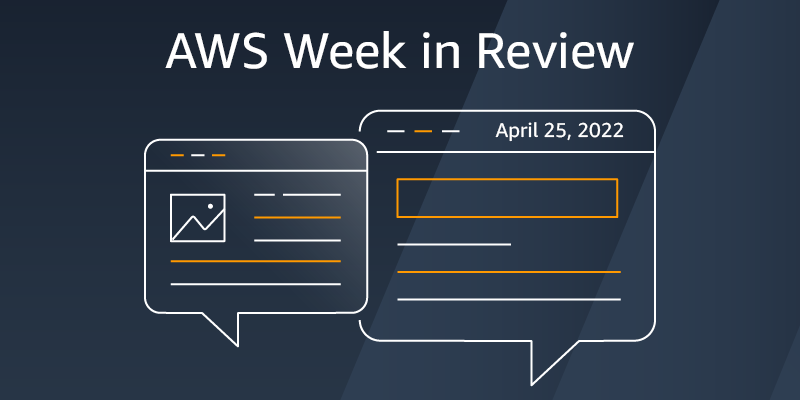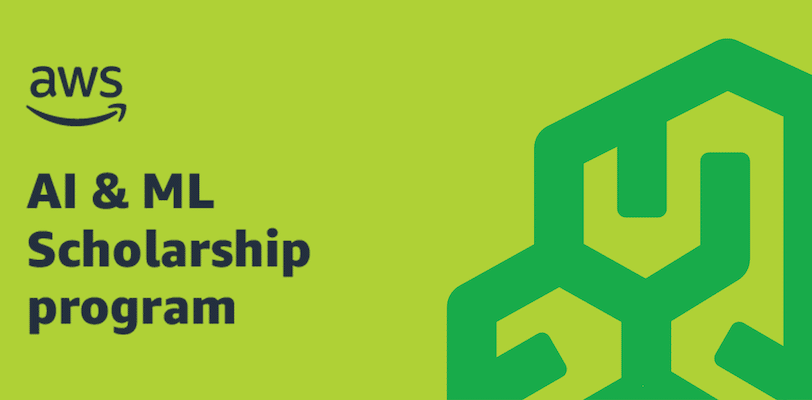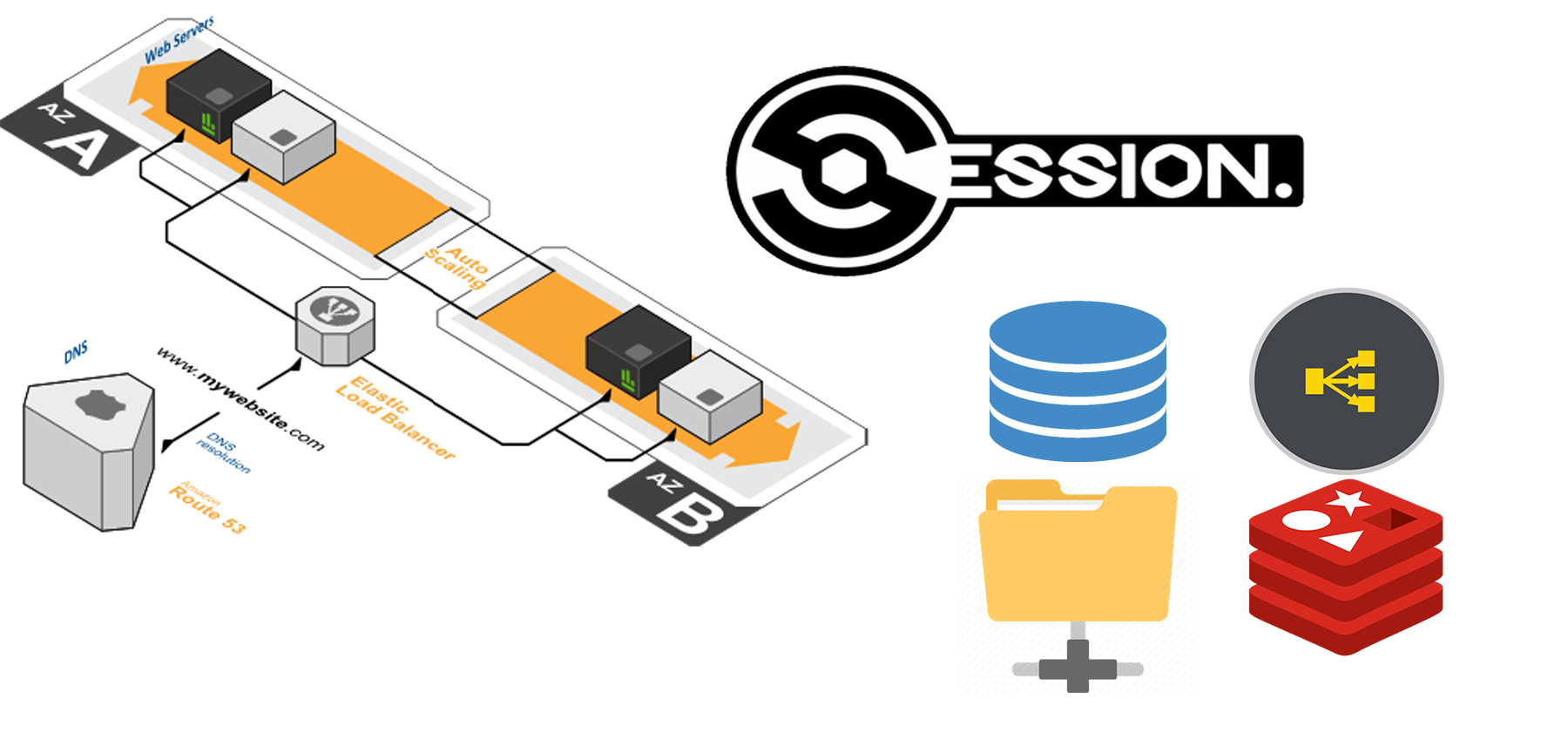25 Apr

[ad_1]
This post is part of our Week in Review series. Check back each week for a quick roundup of interesting news and announcements from AWS!
 The first in this year’s series of AWS Summits took place in San Francisco this past week and we had a bunch of great announcements. Let’s take a closer look…
The first in this year’s series of AWS Summits took place in San Francisco this past week and we had a bunch of great announcements. Let’s take a closer look…
Last Week’s Launches
Here are some launches that caught my eye this week:
AWS Migration Hub Orchestrator – Building on AWS Migration Hub (launched in 2017), this service helps you to reduce migration costs by automating manual tasks, managing dependencies between tools, and providing better visibility into the migration progress. It makes use of workflow templates that you can modify and extend, and includes a set of predefined templates to get you started. We are launching with support for applications based on SAP NetWeaver with HANA databases, along with support for rehosting of applications using AWS Application Migration Service (AWS MGN). To learn more, read Channy’s launch post: AWS Migration Hub Orchestrator – New Migration Orchestration Capability with Customizable Workflow Templates.
Amazon DevOps Guru for Serverless – This is a new capability for Amazon DevOps Guru, our ML-powered cloud operations service which helps you to improve the availability of your application using models informed by years of Amazon.com and AWS operational excellence. This launch helps you to automatically detect operational issues in your Lambda functions and DynamoDB tables, giving you actionable recommendations that help you to identify root causes and fix issues as quickly as possible, often before they affect the performance of your serverless application. Among other insights you will be notified of concurrent executions that reach the account limit, lower than expected use of provisioned concurrency, and reads or writes to DynamoDB tables that approach provisioned limits. To learn more and to see the full list of insights, read Marcia’s launch post: Automatically Detect Operational Issues in Lambda Functions with Amazon DevOps Guru for Serverless.
AWS IoT TwinMaker – Launched in preview at re:Invent 2021 (Introducing AWS IoT TwinMaker), this service helps you to create digital twins of real-world systems and to use them in applications. There’s a flexible model builder that allows you to create workspaces that contain entity models and visual assets, connectors to bring in data from data stores to add context, a console-based 3D scene composition tool, and plugins to help you create Grafana and Amazon Managed Grafana dashboards. To learn more and to see AWS IoT TwinMaker in action, read Channy’s post, AWS IoT TwinMaker is now Generally Available.
AWS Amplify Studio – Also launched in preview at re:Invent 2021 (AWS Amplify Studio: Visually build full-stack web apps fast on AWS), this is a point-and-click visual interface that simplifies the development of frontend and backends for web and mobile applications. During the preview we added integration with Figma so that to make it easier for designers and front-end developers to collaborate on design and development tasks. As Steve described in his post (Announcing the General Availability of AWS Amplify Studio), you can easily pull component designs from Figma, attach event handlers, and extend the components with your own code. You can modify default properties, override child UI elements, extend collection items with additional data, and create custom business logic for events. On the visual side, you can use Figma’s Theme Editor plugin to make UI components to your organization’s brand and style.
Amazon Aurora Serverless v2 – Amazon Aurora separates compute and storage, and allows them to scale independently. The first version of Amazon Aurora Serverless was launched in 2018 as a cost-effective way to support workloads that are infrequent, intermittent, or unpredictable. As Marcia shared in her post (Amazon Aurora Serverless v2 is Generally Available: Instant Scaling for Demanding Workloads), the new version is ready to run your most demanding workloads, with instant, non-disruptive scaling, fine-grained capacity adjustments, read replicas, Multi-AZ deployments, and Amazon Aurora Global Database. You pay only for the capacity that you consume, and can save up to 90% compared to provisioning for peak load.
Amazon SageMaker Serverless Inference – Amazon SageMaker already makes it easy for you to build, train, test, and deploy your machine learning models. As Antje descibed in her post (Amazon SageMaker Serverless Inference – Machine Learning Inference without Worrying about Servers), different ML inference use cases pose varied requirements on the infrastructure that is used to host the models. For example, applications that have intermittent traffic patterns can benefit from the ability to automatically provision and scale compute capacity based on the volume of requests. The new serverless inferencing option that Antje wrote about provides this much-desired automatic provisioning and scaling, allowing you to focus on developing your model and your inferencing code without having to manage or worry about infrastructure.
Other AWS News
Here are a few other launches and news items that caught my eye:
AWS Open Source News and Updates – My colleague Ricardo Sueiras writes this weekly open-source newsletter where he highlights new open source projects, tools, and demos from the AWS community. Read edition #109 here.
Amazon Linux AMI – An Amazon Linux 2022 AMI that is optimized for Amazon ECS is now available. Read the What’s New to learn more.
AWS Step Functions – AWS Step Functions now supports over 20 new AWS SDK integrations and over 1000 new AWS API actions. Read the What’s New to learn more.
AWS CloudFormation Registry – There are 35 new resource types in the AWS CloudFormation Registry, including AppRunner, AppStream, Billing Conductor, ECR, EKS, Forecast, Lightsail, MSK, and Personalize. Check out the full list in the What’s New.
Upcoming AWS Events![]() The AWS Summit season is in full swing – The next AWS Summits are taking place in London (on April 27), Madrid (on May 4-5), Korea (online, on May 10-11), and Stockholm (on May 11). AWS Global Summits are free events that bring the cloud computing community together to connect, collaborate, and learn about AWS. Summits are held in major cities around the world. Besides in-person summits, we also offer a series of online summits across the regions. Find an AWS Summit near you, and get notified when registration opens in your area.
The AWS Summit season is in full swing – The next AWS Summits are taking place in London (on April 27), Madrid (on May 4-5), Korea (online, on May 10-11), and Stockholm (on May 11). AWS Global Summits are free events that bring the cloud computing community together to connect, collaborate, and learn about AWS. Summits are held in major cities around the world. Besides in-person summits, we also offer a series of online summits across the regions. Find an AWS Summit near you, and get notified when registration opens in your area.
 .NET Enterprise Developer Day EMEA – .NET Enterprise Developer Day EMEA 2022 is a free, one-day virtual conference providing enterprise developers with the most relevant information to swiftly and efficiently migrate and modernize their .NET applications and workloads on AWS. It takes place online on April 26. Attendees can also opt-in to attend the free, virtual DeveloperWeek Europe event, taking place April 27-28.
.NET Enterprise Developer Day EMEA – .NET Enterprise Developer Day EMEA 2022 is a free, one-day virtual conference providing enterprise developers with the most relevant information to swiftly and efficiently migrate and modernize their .NET applications and workloads on AWS. It takes place online on April 26. Attendees can also opt-in to attend the free, virtual DeveloperWeek Europe event, taking place April 27-28.
![]() AWS Innovate – Data Edition Americas – AWS Innovate Online Conference – Data Edition is a free virtual event designed to inspire and empower you to make better decisions and innovate faster with your data. You learn about key concepts, business use cases, and best practices from AWS experts in over 30 technical and business sessions. This event takes place on May 11.
AWS Innovate – Data Edition Americas – AWS Innovate Online Conference – Data Edition is a free virtual event designed to inspire and empower you to make better decisions and innovate faster with your data. You learn about key concepts, business use cases, and best practices from AWS experts in over 30 technical and business sessions. This event takes place on May 11.
That’s all for this week. Check back again next week for the another AWS Week in Review!
— Jeff;
[ad_2]
Source link



